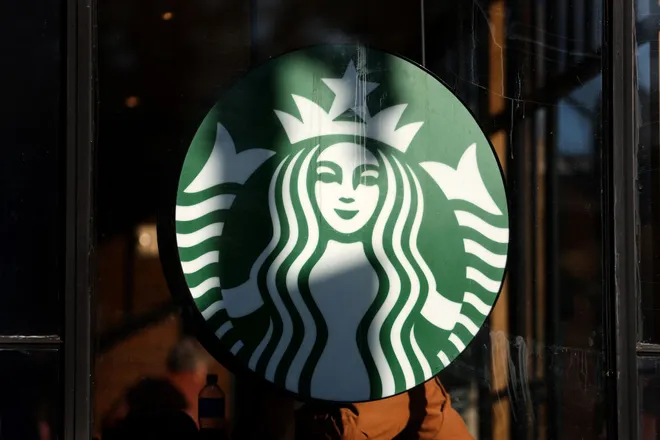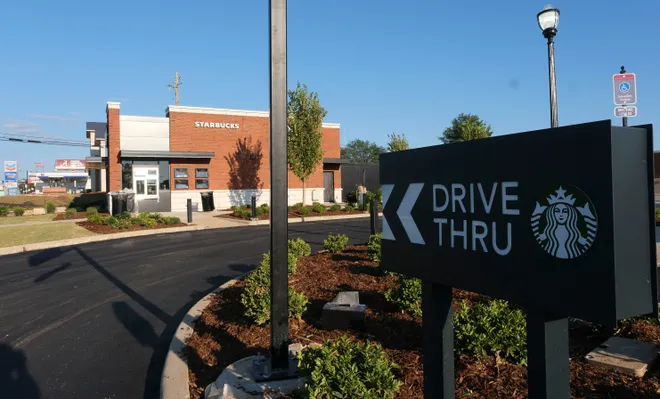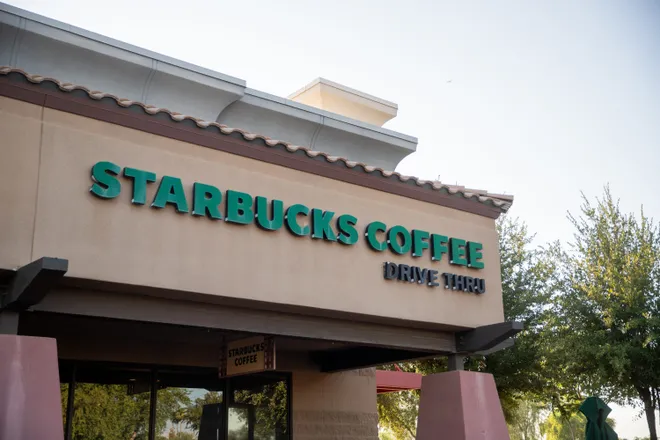'A lie': Starbucks sued over claims about ethically sourced coffee and tea

A consumer advocacy group has sued Starbucks, accusing the company of false advertising and deceiving customers by claiming its beverages are 100% ethically sourced.
There is widespread evidence to suggest that the Seattle-based coffeechain “relies on farms and cooperatives that commit egregious labor and human rights violations” to produce their coffee and tea, according to the lawsuit, filed in a Washington, D.C., court on Wednesday by The National Consumers League.
“On every bag of coffee and box of K-cups sitting on grocery store shelves, Starbucks is telling consumers a lie,” Sally Greenberg, chief executive officer of the National Consumers League, said in a news release.
The lawsuit says that the company continues to “unjustly benefit” from its reputation as a leader in corporate responsibility despite doing business with cooperatives and farms with a documented history of "child labor, forced labor, sexual harassment and assault," according to a copy of the complaint obtained by USA TODAY on Thursday.
Starbucks plans on “aggressively defending against claims that the company has misrepresented our ethical sourcing commitments to customers,” according to a statement.
“We take these allegations very seriously,” Michelle Burns, Executive Vice President of global coffee, social impact and sustainability, wrote in a statement.
Here’s what we know.
What does the lawsuit against Starbucks seek?

The goal of the lawsuit is to protect consumers nationwide, who may “unknowingly be buying unethically sourced coffee or tea” from the brand, paying a a premium for those products, according to the consumer league.
“Consumers have a right to know exactly what they’re paying for," Greenberg said in a news release.
The consumer group said they sought an order to prevent the coffee chain from “further engaging in deceptive advertising and requiring the company to run a corrective advertising campaign,” according to their website.
In order to “make good” on the promises advertised to its customers, Starbucks would have to “significantly reform its sourcing and monitoring practices,” citing examples of alleged ethical violations in the last decade, the consumer league said.
Some of alleged violations include: a 2022 labor complaint filed in Brazil, sexual abuse discovered at a plantation in Kenya, “slavery-like conditions” at a farm in Brazil and evidence of children under the age of 13 working at a farm in Guatemala, according to the consumer league
The group also alleges that despite a C.A.F.E. Practices certification – an ethical sourcing standard launched by the company in 2004 – at those “certified farms and cooperatives,” Starbucks has failed to respond with meaningful action in instances where alleged abuse was reported.
“Starbucks misleadingly fails to disclose facts material to consumer-purchasing decisions, including that many of its supposedly ethical suppliers have in fact relied on forced and/or child labor, i.e. that C.A.F.E. Practices certification does not guarantee the absence of forced and child labor,” according to the complaint.
How has Starbucks responded?

Starbucks has stood behind their ethical-sourcing program, Coffee and Farmer Equity (C.A.F.E.) Practices, says that that it was the “best-in-class.”
“Our commitment and our responsibility to build a more sustainable, equitable, and resilient future for coffee is unwavering,” according to a company statement.
The coffee giant included a list of facts about C.A.F.E. Practices, says it “remains the cornerstone of our holistic work to ensure the long-term supply of high-quality coffee.”
- "C.A.F.E. Practices is a verification program, not a one-time certification system."
- "To maintain an active status in the program, each supply chain is required to undergo reverification regularly with frequency dictated by their performance in the program and the size of the farm."
- "Starbucks relies on SCS Global Services (SCS) to ensure the quality and integrity of the third-party auditing for C.A.F.E. Practices."
- "We believe that a focus on scrutiny for continuous improvement is the right approach to promote positive change amongst suppliers and farms and ensure a future for everyone involved in coffee."
- "In instances where Starbucks is notified of alleged violations, we take immediate action … We remain committed to meeting the expectations detailed in our Global Human Rights Statement."
After “auditing farms, evaluating results, and strengthening our auditing standards and practices” over the last 20 years, the company said they have “gained valuable insights into what support coffee farmers need.”
Starbucks said they would keep their partners updated as they learned more about the situation.
“We will continue to maintain our presence in regions where we source coffee across the globe – even when it’s hard – because it is the right thing to do. We believe Starbucks' presence in these communities must be a force of good,” Burns said.

Disclaimer: The copyright of this article belongs to the original author. Reposting this article is solely for the purpose of information dissemination and does not constitute any investment advice. If there is any infringement, please contact us immediately. We will make corrections or deletions as necessary. Thank you.







